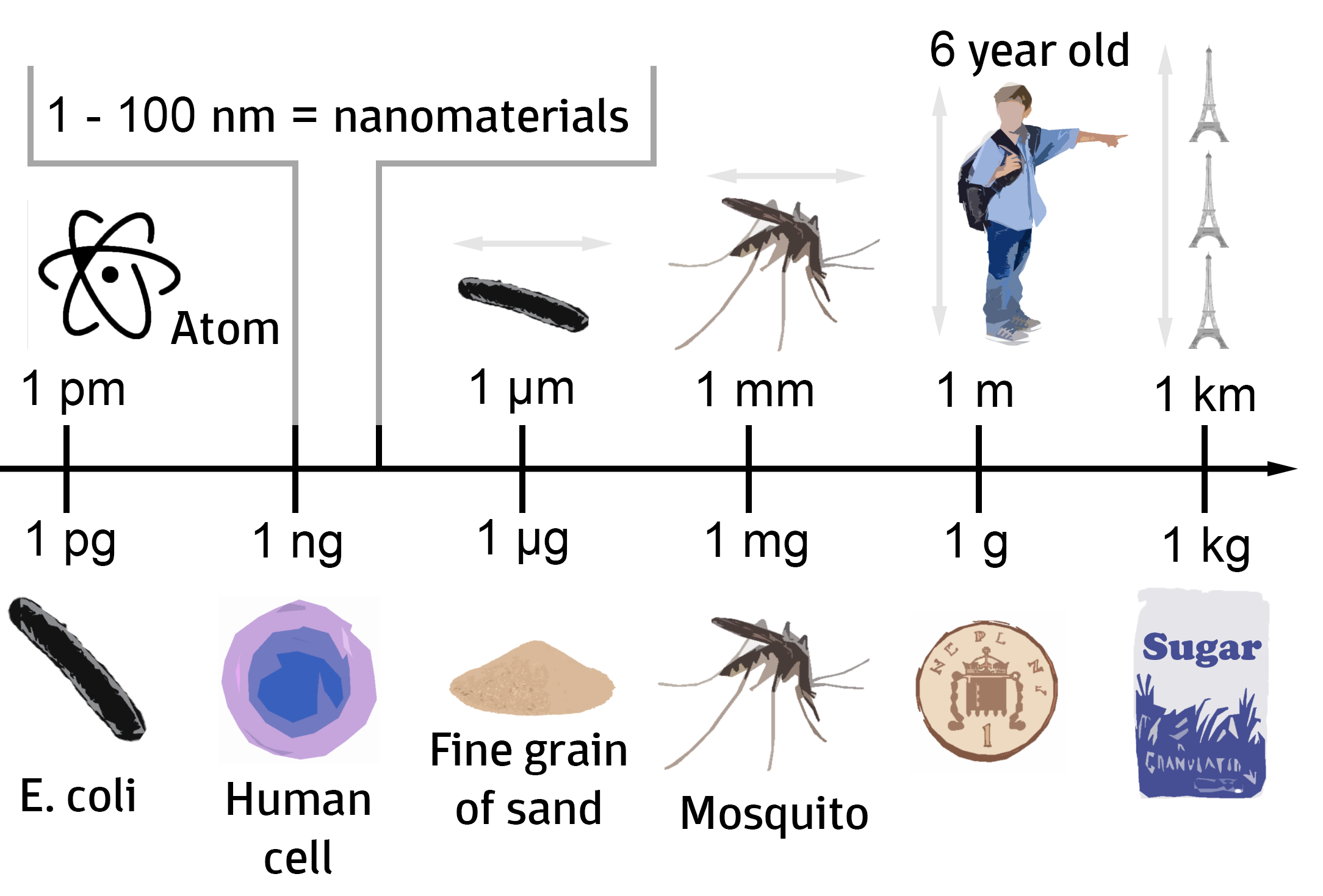Nanoscience and nanotechnology is a branch of science and technology that aims to manipulate and study atoms and molecules on the nanometer scale, ranging from 1 to 100 nm. Nanoscience allows us to understand how matter behaves on these scales and nanotechnology focuses on developing real world applications. The technology aspect focuses on making nanoscale materials and machines for electronic devices in computers to energy harvesting, and medical applications. A nanometer is a billionth of a meter which is almost the same difference in length between the diameter of a tennis ball and the earth. Yet, an atom would be the size of a small bug. Interestingly, your finger nails grow one nanometer every second. Nanoscience brings together scientists from many different areas including physics, chemistry, biology, material science, and engineering to solve problems.
Our ability to manipulate atoms and molecules at the nanometer scale to build materials is fundamental to advances in miniaturised smart phones and computers with touch screens and fast processors. Without nano, much of the technology that surrounds us wouldn’t exist. Many people are currently working on how light and electricity interacts with nanomaterials from graphene, one of the thinnest materials in the world, to DNA and gold. These small scale materials have interesting properties and behave very differently compared to their bulk properties. For example, gold nanoparticles emit blue and red light depending on their size and graphene conducts electricity at super-fast speeds. We can also fold DNA into different shapes to build machines that mimic the biological machinery in our bodies.
At the “Mind the Nano Gap” exhibition we will take you on a tour of how we can use both nanoscience and nanotechnology to build devices for sensing and understanding biology. From sensing in the flatland to nanopores and nanogaps, we will explain how we can use light and electricity to sense and quantify biomolecules at much faster rates compared to the current state of the art. We will also shed light on the ethical issues surrounding these technologies, as an intelligent toilet may be in your home in the near future.

